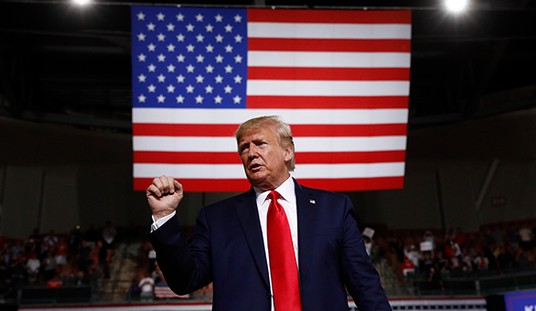
“We choose not between Marx and Adam Smith but between the DMV and the Apple store,” Kevin D. Williamson writes at National Review Online, in a read-the-whole thing article:
I can walk out of the Apple store on Fifth Avenue in New York, which sees more visitors per day than any DMV office, with a couple thousand dollars’ worth of electronics without ever having to stand in line, much less fill out paperwork. When I found myself in need of an unexpectedly large sum of cash while out of the country a couple of years ago, one telephone call to American Express, lasting less than ten minutes, was all it took. Services such as Seamless and OpenTable have greatly simplified all sorts of commercial transactions, and services such as Uber have begun to disrupt longstanding cartels and monopolies on taxi services and other conveniences. Some services even make dealing with the government easier, such as the concealed-carry apps that use GPS to let you know whether you’re legally packing.
And Leviathan is not happy about that.
As noted above, I will go literally miles out of my way to avoid an interaction with the U.S. Postal Service, and I had very much been looking forward to becoming a customer of Outbox, the Austin-based tech startup offering a terrific service: You have your mail forwarded to Outbox, which then sorts and digitizes it for you, giving you the option of taking physical delivery of certain documents and ignoring others, for the princely sum of $5 a month. Customers loved it, Peter Thiel and other venture-capital giants invested in it, and — no surprise — the U.S. Postal Service shut it down. The Austin post office had agreed to a test run, but when the postmaster general caught a whiff of what they were up to thanks to media reports about the service’s success, he shut the cooperation down. Never mind the benefits of Outbox — happy customers, tons and tons of recycled paper, and, not least, the promise of relieving the USPS of the burden of actually moving many tons of paper across the country, in various petroleum-powered vehicles that so worry our environmentalist friends, only to see it directly deposited into the trash — the titans of junk mail did not want to end up in the physical equivalent of a spam filter.
DMV Versus the Apple Store is a great analogy; it’s sort of an update of the speeches that Newt Gingrich was giving during the heady Contract With America days of 1994 and 1995, when he would hold up in one hand a vacuum tube, and in the other a microchip. As he explained, vacuum tubes were still in use in some FAA-regulated Air Traffic Control towers in America. And as the Obamacare-supporting New York Times noted this past December, there are agencies in the federal government still using floppy disks, thus making reality out of the only temporarily satiric cover from the Obamacare-supporting New Yorker of the previous month. The New Yorker cover depicted a nervous-looking Carney carefully inserting a floppy into a CRT-equipped Oval Office PC, Mr. Obama on Gordon Gekko’s brick-sized cell phone, and the hopeless Kathleen Sebelius standing between them doing nothing but crossing her fingers, thus anticipating her eventual termination. (But not before the classic reverse-Alinsky moment when she was photographed holding a copy of Web Sites for Dummies and reacting in shock and horror like a distaff Dracula being handed the Bible.)
Conservatism and the desire for small — or these days smaller — government isn’t anarchy, despite what some of the loonier regions of the MSM claim from time to time. So why aren’t more conservative candidates or politicians using Williamson’s analogy?
Or any of them, come to think of it?
(By the way, a big thanks to Glenn Reynolds for allowing me to sit in once again at Instapundit.com last week, during his vacation.)











Join the conversation as a VIP Member